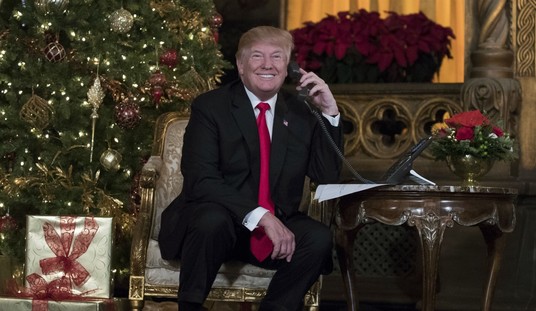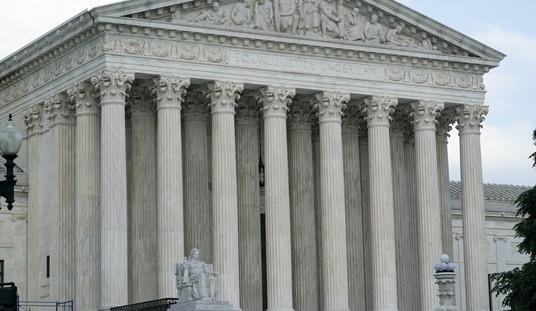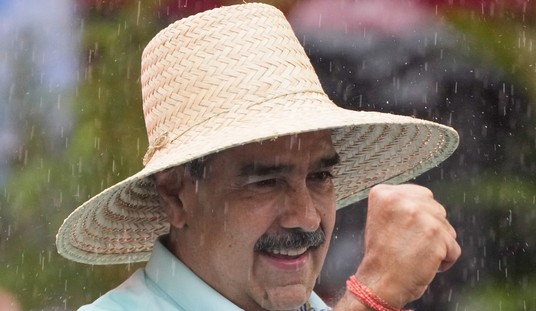
In the fifth provocation over the past three weeks, advisor to Iranian President Rouhani, Hessameddin Ashena, took to Twitter to issue a Fourth of July message to President Trump. “We have unseated an American President in the past. We can do it again. Trump can listen to Pompeo and we’ll make sure he stays a one-term President. Or he could listen to @TuckerCarlson and we might have a different ball game.”
We have unseated an American President in the past. We can do it again. Trump can listen to Pompeo and we’ll make sure he stays a one-term President. Or he could listen to @TuckerCarlson and we might have a different ball game.
— Hesameddin Ashena (@hesamodin1) July 3, 2019
Ashena’s claim of “unseating an American President” is a reference to former President Carter who lost his bid for reelection in 1980. Iran had refused to release 52 American hostages whom had been held for 444 days. By the time President Reagan had ended his inaugural address on January 20, 1981, the hostages had been freed.
His reference to Tucker Carlson comes as a result of reports last week that Carlson had been advising President Trump against involving the U.S. in a war with Iran. Secretary of State Mike Pompeo, on the other hand, seems to favor military action.
Iran seems to be wearing a large neon sign which says, “Notice Me.” Three weeks ago, they attacked two oil tankers leaving the Strait of Hormuz. Next, it shot down a U.S. drone which they claimed had flown into their airspace. Then, in rapid-fire fashion this week, Iran first announced they had breached the enriched uranium stockpile limit set forth by the nuclear deal. Next, they threatened to begin enriching uranium above the 3.67% concentration which they had agreed to unless sanctions were lifted by Sunday. And on Thursday, Rouhani’s advisor sent the above tweet to warn Trump that they hold his second term in their hands.
Following Iran’s threat to enrich beyond the 3.67% concentration level, but prior to Ashena’s tweet on Thursday, Trump sent the following tweet.
Iran has just issued a New Warning. Rouhani says that they will Enrich Uranium to “any amount we want” if there is no new Nuclear Deal. Be careful with the threats, Iran. They can come back to bite you like nobody has been bitten before!
— Donald J. Trump (@realDonaldTrump) July 3, 2019
Judging by its numerous recent provocations, the country’s economy may be in even more dire condition than we had thought. After pulling out of the nuclear deal last year, Trump reimposed economic sanctions against Iran and has intensified them since then. The administration has also designated Iran’s Islamic Revolutionary Guard Corps as a terrorist group. Trump’s “maximum pressure” campaign has had the desired effect. (I posted about the damage the sanctions have already inflicted on their economy here and here.)
Reuters reported last week that Iran crude oil exports in June had fallen to 300,000 barrels per day (bpd). In Aril 2018, the month before Trump’s decision to leave the nuclear deal, Iran’s oil exports had averaged 2.5 million bpd.
According to The Wall Street Journal:
Iran’s government budget, set in December, is built on the assumption that daily oil exports would be 1.5 million barrels, bringing $24 billion in annual revenue, according to Rahim Zare, a member of Iran’s economic commission.
Iranian officials had been banking that they would be able to keep exporting about 800,000 barrels a day, a level at which they felt the country could muddle through, as it did during the height of Obama-era restrictions, former Iranian officials said. Most of today’s exports go to China.
Iran has actually been exporting more oil than its reported. The WSJ reports:
Iran has found ways to smuggle oil, often by shipping crude to a remote location, turning off its location equipment and making furtive transfers to other ships, shipping experts say. Saudi Arabia’s oil minister said last month far more oil was being shipped from Iran than reported.
But the limits of those efforts were underlined Thursday when the government of Gibraltar, an overseas territory of the U.K., said it had stopped a tanker to Syria. Sam Madani, co-founder of TankerTrackers.com, said the tanker left Iran on April 17 laden with some type of fuel.
Up until now, believing that Trump would be a one-term president, Iran has been “waiting out” his presidency and following a policy of “strategic patience.” Now that Trump’s reelection is a real possibility, Iran appears to be reassessing this position.
It’s unclear how France, Germany and the UK will react to Iran’s most recent provocations. I posted about their noncommittal responses to news that Iran had breached their enriched uranium stockpiles on Monday here. All three European countries have been reluctant to take action against Iran because of their profitable trade relationships with Iranian companies.
However, it’s important to note that they “have done little to help Tehran push back against American sanctions, resulting in international isolation.”
If Iran continues to test the limits of the nuclear deal, even Europe’s patience might end which could mean the end of the deal and the restoration of international sanctions against them.
Iran leaders assume that Trump won’t take military action against them, because “it could cost the president the election.” I think that’s a dangerous assumption. Trump came very close to a military strike on the country last week. At a certain point, most Americans would support retaliatory action – not a war, but isolated military strikes on several Iranian military targets.
Esfandyar Batmanghelidj, founder of Bourse & Bazar, a business analysis website focused on Iran, offered his take on Iran’s current position:
Iranian leaders say they won’t negotiate with Mr. Trump on anything unless he lifts sanctions first, and has so far refused to discuss its conventional military means. But Iran’s strategy is aimed at finding a way to the negotiating table.
Iran believes that increasing nuclear activities and ramping up tensions serve to make negotiations a priority for the U.S. It also allows Iran to amass bargaining chips in case it decides to enter into future negotiations.
The main thing people need to realize is that the only escalation maps being debated in Iran are those that lead to talks. Iran wants to avoid becoming like Cuba, where sanctions are locked-in forever because the country has ceased to be geopolitically relevant enough for the U.S. to care about changing its strategy.
There are two reason why I don’t believe Trump would lift sanctions at this point. First, they are working so well. And second, such a move would make him appear weak in the eyes of the world. But he has been known to surprise us.
Stay tuned.














Join the conversation as a VIP Member